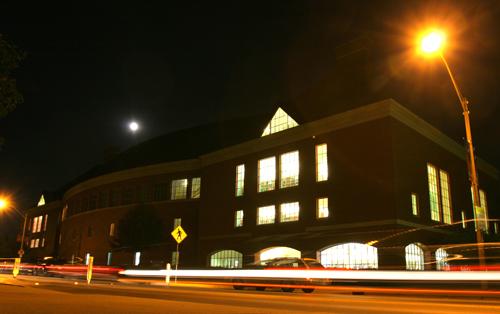Grainger, Undergrad libraries open 24 hours

Erica Magda
Aug 30, 2007
Last updated on May 12, 2016 at 03:09 p.m.
Students who prefer to study into the early hours of the morning now have additional places to work.
On Aug. 23, Grainger Engineering Library, 1301 W. Springfield Ave., and the Undergraduate Library, 1402 W. Gregory Drive, began extended hours and are now open for 24 hours and five days a week.
The libraries will open at 10 a.m. Sunday morning and close at 9 p.m. Friday night. Saturday hours are from 10 a.m. to 10 p.m.
“We were open until 3 a.m.,” said Bill Mischo, engineering librarian and professor of library administration, “so we’ve added 28 hours to the Grainger Library schedule.”
Get The Daily Illini in your inbox!
All of Grainger Library will be open to students at all times.
Meanwhile, students at the Undergraduate Library will be permitted to work in a study lobby between 3 a.m. and 8 a.m.
In addition to the Undergraduate Library’s early morning study hours, the library lengthened its weekend hours.
“We will be assessing the effectiveness of these hours and how many students make use of them,” Lisa Hinchliffe, head of the Undergraduate Library, said in an e-mail.
Additional staff was hired at both libraries, and a security guard was hired at the Undergraduate Library to accommodate the additional hours of operation.
The extended hours are being paid for by a library fee attached to the tuition of this year’s incoming freshmen. The fee will be rolled over to each incoming freshman class until it is entirely phased in four years from now.
The decision to limit the expansion of hours to just two libraries was determined by the amount of student activity in those libraries.
“(The) Undergrad and Grainger are our busiest libraries,” said Scott Walter, assistant University librarian for services. “We know that they’re the libraries that are used most by our students.”
Walter said that the library system at the University has known for a while that students have been interested in extended hours.
“We did student surveys of students in 2004 and 2005. We did an undergraduate survey in 2004 and a graduate survey in 2005,” Walter said. “We got a very consistent answer for more hours.”





